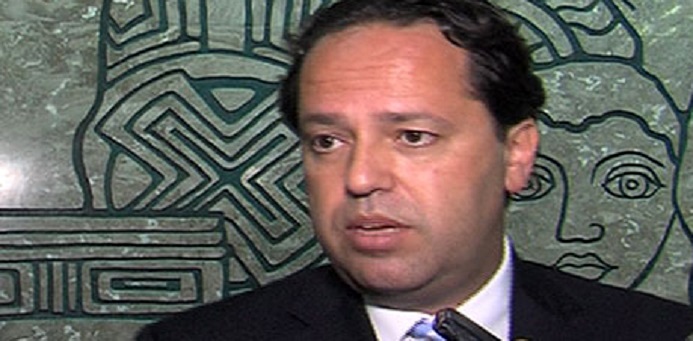Mozambique: External donations secured in H1 total $110.8m
IMF expects “good news” in Mozambique in the first half of 2017

O País / Ari Aisen is the Resident Representative of the International Monetary Fund in Mozambique
The International Monetary Fund (IMF) representative in Maputo expects “good news” in Mozambique in the first half of 2017, and expects that the Fund will resume the support interrupted by the hidden debt scandal.
“We expect good news in the first half of 2017,” Ari Aisen told reporters on the sidelines of a Bank of Mozambique press conference.
Aisen recalled that a Fund mission had been to Maputo earlier this month and had had “very good talks at the Ministry of Finance”, which lead the Fund to feel that “there is a commitment to think of ways to consolidate fiscal spending and at the same time invest in the tax side, to increase the collection a bit “.
Next year, the talks would continue, and an independent international audit of the three companies benefiting from the hidden debts was scheduled to be completed in February.
“Obviously, the completion of the audit is fundamental and it is difficult to say exactly when this process will end but we are expecting good news,” Aisen insisted, adding that he hoped 2017 would be “a little easier than 2016” for Mozambique.
The Fund representative was speaking on the sidelines of the end-of-year presentation at the Bank of Mozambique, in which the governor of the institution, Rogério Zandamela, forecast average inflation falling to 14 percent and economic growth increasing to 5.5 percent.
The IMF mission to Maputo earlier this month warned that Mozambique would need more macroeconomic adjustment measures in 2017, pointing to wage restraint and the phasing out of general subsidies on consumer goods.
The IMF mission welcomed the “constructive and collaborative environment” of dialogue with the Mozambican authorities, as well as “good progress on a number of technical issues”, but warned that further consolidation of macroeconomic and financial stability would be necessary in order to open space for a new program supported by the Fund.
Specifically, the IMF mission pointed to the need for “special attention to curbing the increase in [government] payroll and the phasing out of general price subsidies”.
IMF and state budget donors suspended aid to Mozambique in April this year following the revelation of government-guaranteed loans amounting to more than $1.4 billion (EUR 1.2 billion), in addition to the already known costs of the Mozambican Tuna Company (Ematum) contracted in a similar manner.
On October 25, the Mozambican government admitted its inability to pay upcoming instalments and asked creditors for a restructuring and the IMF for a new aid program. Fund rules forbid aid to countries with an unsustainable debt trajectory, as is the case in Mozambique.
The Fund mission “welcomed” the agreement to carry out an independent audit of state-owned companies benefiting from the hidden loans, which creditors themselves had made a precondition for renegotiating the loans.













Leave a Reply
Be the First to Comment!
You must be logged in to post a comment.
You must be logged in to post a comment.